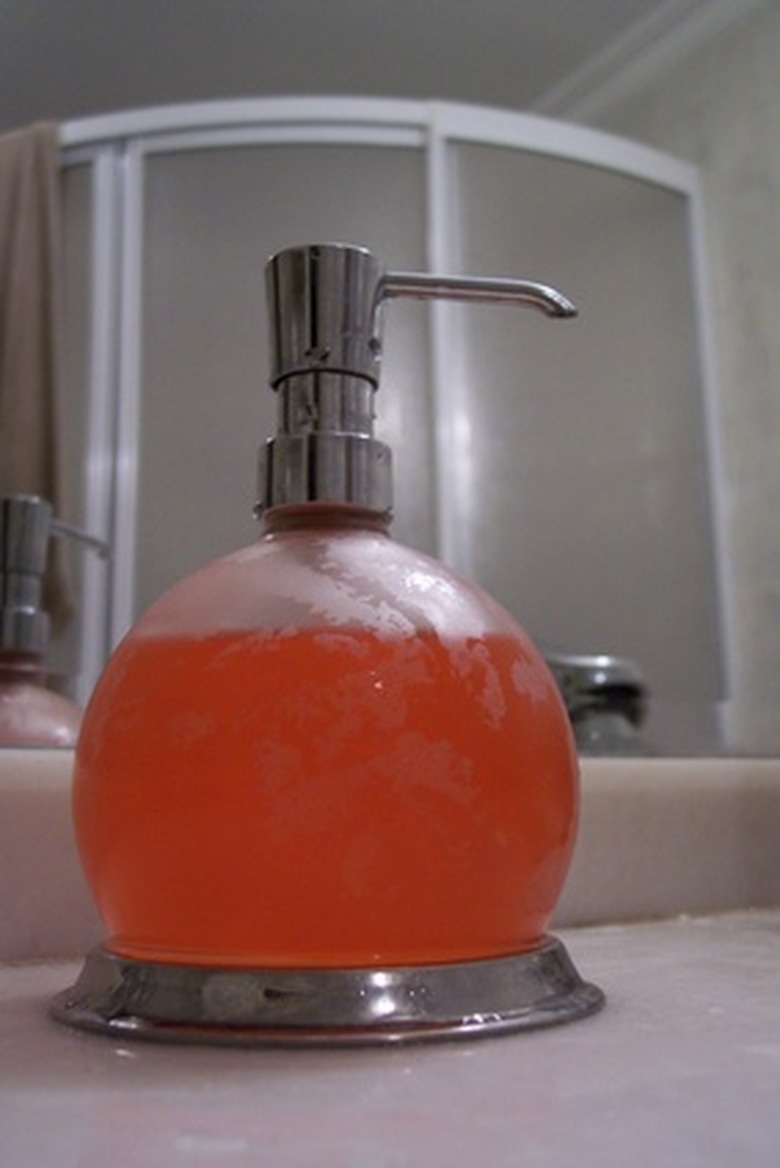What Are The Effects Of Soapy Water On Plants?
As an ecologically responsible gardener, you want to conserve water and avoid introducing toxins into the environment. But not all toxins are labeled as such. Detergents labeled "non-toxic" may be harmless to the environment at large; up close and personal is another story. Get the facts before soaping up your garden.
Kill Your Garden
Soaps and detergents are toxic to plants. A strong solution of soapy water sprayed onto foliage can disintegrate the leaves' waxy coating, resulting in water loss and the eventual dehydration death of the plant. And though it may seem like a good drought-conscious practice to water your plants with the soapy water left over from washing the dishes, your plants will pay for it in the long run. Soap will remain in the soil, making it toxic and eventually deadly.
- As an ecologically responsible gardener, you want to conserve water and avoid introducing toxins into the environment.
Control Weeds
Soap isn't picky. It'll kill the plants you don't want as surely as the ones you do. To make an herbicide that will do in your weeds without damaging the environment, mix 5 tablespoons of dishwashing liquid or liquid hand soap into a quart of water. Coat weeds well and soon enough they'll wilt. This method works best when it's hot out and plants are most susceptible to dehydration.
Control Pests
You may be wondering why anyone would want to spray soapy water on garden foliage. Mites and aphids are two very good reasons. Soap kills small, soft-bodied insects the same way it can kill plants: it penetrates and dissolves the protective wax coating the insect, and they lose water. It can also disrupt the insects' cell membranes.
- It'll kill the plants you don't want as surely as the ones you do.
- Soap kills small, soft-bodied insects the same way it can kill plants: it penetrates and dissolves the protective wax coating the insect, and they lose water.
If you want to exterminate pests without hurting your garden, use horticultural insecticidal soaps, not homemade detergent solutions. Horticultural soaps contain ingredients selected to maximize damage to specific insects and minimize damage to plants. They're a lot more consistent from batch to batch, too.
Always dilute insecticidal soaps according to the label instructions. Every four to seven days, spray plants thoroughly, including the undersides of leaves. Only those insects you coat when you spray will die; those that arrive later will be unaffected. To be safe, spray a test area of a small plant and wait a few days before applying it to your whole garden; some plants are more sensitive than others. And use the spray only during the cooler parts of the day, for the same reason you'd use soapy herbicides when it's hot out: plants are more vulnerable to dehydration in the heat.
- If you want to exterminate pests without hurting your garden, use horticultural insecticidal soaps, not homemade detergent solutions.
- And use the spray only during the cooler parts of the day, for the same reason you'd use soapy herbicides when it's hot out: plants are more vulnerable to dehydration in the heat.
